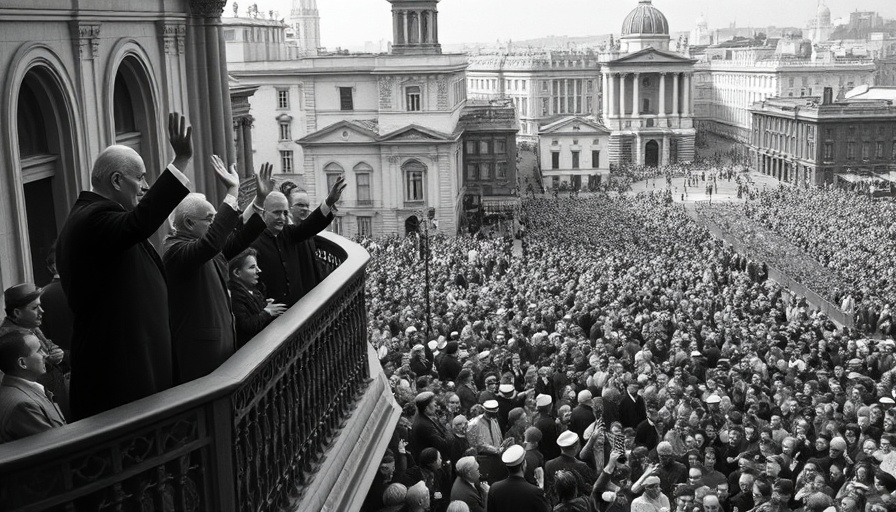
The Revival of Radical Ideologies: A Modern Moment in History
In 2025, a segment of the MAGA movement is not just politically active; they are rewriting the narratives of American history and stoking fears reminiscent of the past. President Trump's recent military strikes on Iran serve as a focal point for this group, challenging traditional views on American military interventions and revealing deep divisions within conservative ranks. Critics within the movement argue that foreign entanglements, especially in conflicts like the one with Iran, compromise American integrity and safety.
Echoes of History: What the Past Teaches Us
The current political rhetoric mirrors sentiments from the late 1930s when isolationism was prevalent in the U.S. Amid the rise of authoritarian regimes globally, many Americans feared involvement in foreign conflicts, leading to significant debates about military action. Just as the isolationist sentiment grew before World War II, there’s a visible faction today that views American military engagements through the lens of potential disaster, fearing recurrence of global conflicts. Such historical parallels illuminate how past ideologies can resurface in modern contexts, prompting us to question current leadership dynamics.
The Emotional Landscape: Media Influence on Ideology
Figures like Candace Owens and Dave Smith harness the power of social media and celebrity to shape public perception. By leveraging their platforms, they disseminate increasingly polarizing rhetoric that often paints American military action as unjust and dangerous. This has resulted in a culture where dissenting voices within the Republican Party use overtly provocative language to rally their audience. Owens’ appeal to military personnel could be seen as both a rallying cry and a call to arms against perceived government overreach, framing their calls for restraint as patriotic.
Conspiracy Theories and the Politics of Distrust
This group is also reviving dangerous conspiratorial thinking, which often leads its followers to question the motives behind U.S. foreign policy. As military strikes like those against Iran encroach upon the debate, some argue that American involvement abroad only serves to further specific political agendas rather than global peace. This rhetoric can dangerously polarize perceptions of leadership while creating a fertile ground for misinformation to thrive.
The Challenges Ahead: Navigating Divided Opinions
One of the most pressing challenges for the GOP is reconciling the faction that advocates for traditional Republican values with the newer, more isolationist voices. This division could impact future election cycles, as party leadership grapples with balancing the need for a strong military presence abroad with burgeoning anti-war sentiments among their base. Understanding these dynamics is critical for stakeholders who aim to navigate the complex political landscape ahead.
As this ideological struggle unfolds, it underscores the importance of examining these narratives not just in light of historical precedents but also through the lens of present realities. Engaging with the debate surrounding military involvement is not only essential for political discourse but for the preservation of democratic ideals and international relationships.
Engagement Call: As debates around military engagement and national identity expand, becoming informed about these discussions is essential. Read further to understand the complexities of today’s political climate and its implications for the future.
 Add Row
Add Row  Add
Add 




Write A Comment